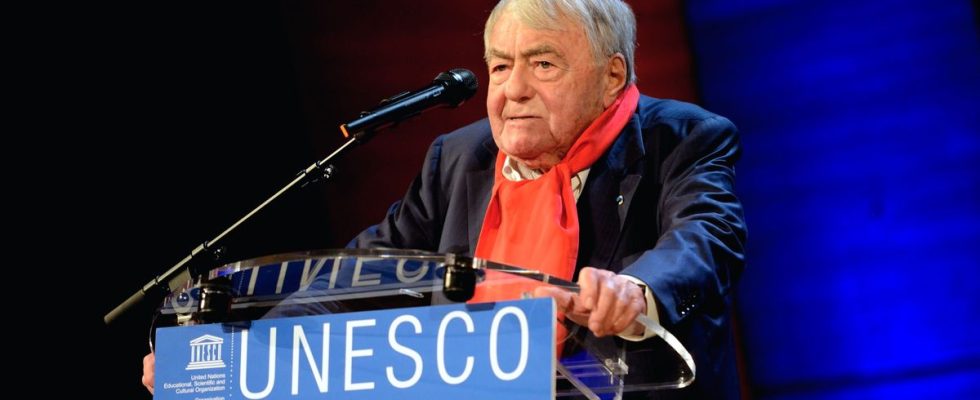A decision to never forget. Claude Lanzmann’s film “Shoah” has been included in UNESCO’s Memory of the World register. The institution’s mission is to protect documentary heritage around the world, the Claude and Felix Lanzmann Association (ACFL) announced on Friday in a press release.
“Shoah” thus joins the cinematographic heritage of the Memory of the World, the archives of the Lumière Brothers, “Metropolis” by Fritz Lang, “Los Olvidados” by Luis Buñuel, and all “Bergman”, underlines the association in a press release, congratulating him on thus confirming “the unique place of this masterpiece between art and history”.
A “film-monument”
The candidacy of this “film-monument” was proposed “jointly” by the French and German National Commissions for Unesco, as “a strong symbol of the Franco-German friendship for which Claude Lanzmann worked from 1947”. It was carried by the ACFL for France, and by the Jewish Museum of Berlin for Germany. With this registration, the association “counts on Unesco to be able to extend its work on a global scale”.
The film “Shoah” entered the history of cinema by its duration (9h30), its form (no archive images) and its purpose: to tell “the unspeakable”, the systematic extermination of the Jews by the Nazis. Its realization was a long-term adventure since the preparation and the filming took place from 1974 to 1981 and the editing lasted almost 5 years.
Show the horror and its trivialization
Thousands of articles, studies, debates have been devoted to this documentary, which has won many awards – notably an honorary César in 1986 – seen by tens of millions of viewers around the world, taught in schools. This documentary brought to the fore the term “Shoah” – which appears in the Bible and means “annihilation” in Hebrew – which has since become commonplace in Europe.
The announcement of its inclusion in UNESCO’s Memory of the World register comes the day Jonathan Glazer’s “The Zone of Interest” is presented in Cannes (in competition), which shows the trivialization of horror with a portrait of a Nazi officer tasting the pleasures of life in his house near the Auschwitz camp.

